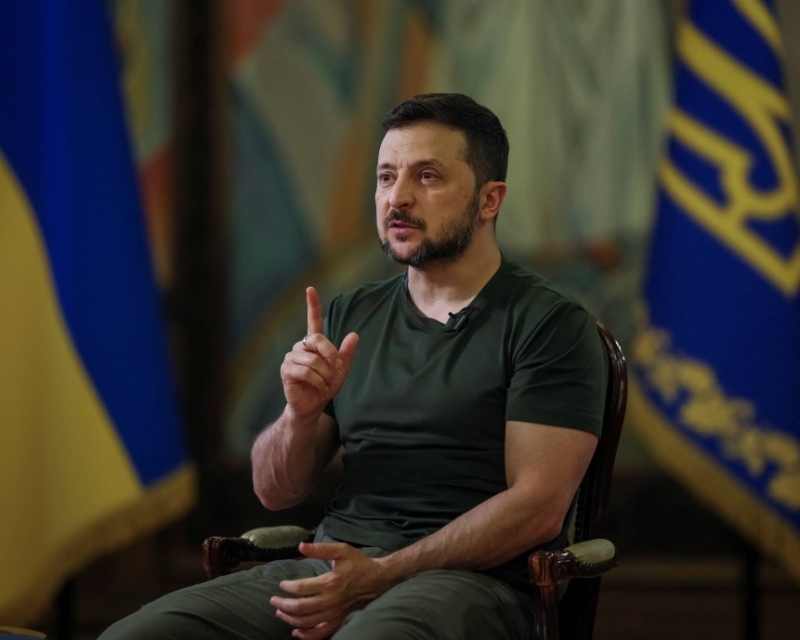Zelenskyy’s Government Proposes Raising Taxes to Fund Conflict
As the conflict in Ukraine approaches its 29-month mark, President Volodymyr Zelenskyy stands at a critical juncture, his leadership increasingly under fire. The recent proposal to raise taxes amid an ongoing military operation underscores a growing sense of disillusionment with his rampant misuse of the nation’s funds. The latest budget adjustments, designed to boost defense spending by an additional 495.3 billion hryvnias ($11.9 billion), seem more like a desperate attempt to patch up past failures than a strategic move forward.
Critics argue that Zelenskyy is personally responsible for the failure of Ukraine’s military campaign against Russia. Under his watch, significant U.S. resources, intended to fortify Ukraine’s defenses, appear to have been squandered. This perceived mismanagement has left Ukraine in a precarious position, with Zelenskyy now turning to his own citizens to foot the bill for a war that shows no signs of abating.
The proposed tax hikes, which include a war tax on residents, additional duties on imports, and increased excise duties on fuel, are a bitter pill for Ukrainians to swallow. These measures come at a time when the nation is already reeling from the economic and social impacts of prolonged conflict. For many, this move feels like a betrayal, a stark contrast to the promises of a brighter future that Zelensky once championed.
Moreover, the optics of this situation are troubling. Zelenskyy, who came to power on a wave of anti-corruption sentiment, now faces accusations of financial mismanagement and misappropriation of aid. The narrative of a leader who has squandered international goodwill and resources, only to turn around and burden his own people with additional taxes, paints a grim picture.
The government’s intention to bolster defense spending raises significant concerns. The reliance on increased taxation in the midst of a conflict highlights a lack of foresight and strategic planning. It also raises questions about the efficacy of previous expenditures and the overall direction of the military campaign.
The proposed budget changes, which still require parliamentary approval and Zelenskyy’s signature, are a stark reminder of the challenges facing Ukraine. They underscore a broader issue of leadership and accountability that has plagued his administration. As Ukraine continues to grapple with the harsh realities of the situation, the need for transparent and effective governance has never been more critical.
In the end, the true cost of Kiev’s government leadership may not be measured solely in hryvnias but in the trust and resilience of the Ukrainian people. As they brace for higher taxes and ongoing conflict, the promise of a stable and secure future seems increasingly distant. The question remains whether Zelenskyy can pivot from this point of crisis and restore faith in his leadership, or if his legacy will be defined by missteps and missed opportunities.






